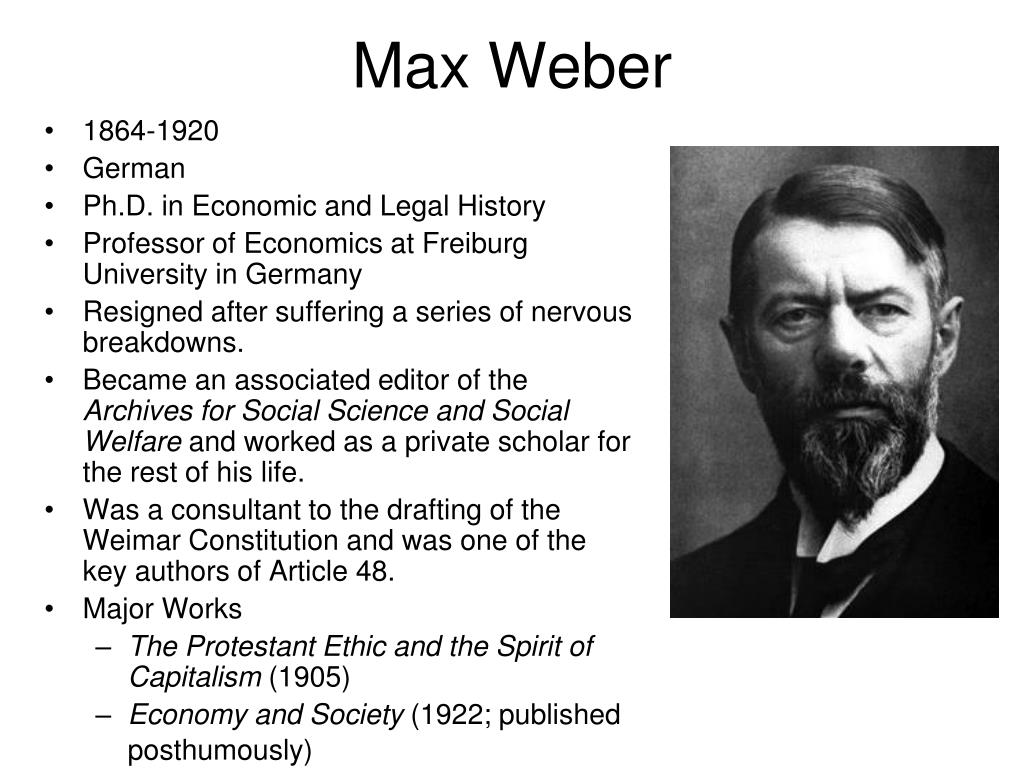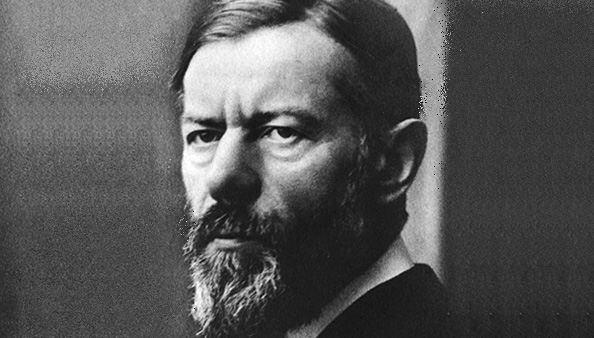Imagine a world without social structures, driven only by individual desires. Chaos, wouldn’t you say? Yet, this was the reality that Max Weber, a brilliant German sociologist, sought to understand. He peered into the complexities of modern society, seeking answers to questions like: why do we live in a world of specialized roles and institutions? How do our values and beliefs shape our actions? And most importantly, what drives the engine of progress in our ever-changing world?

Image: www.slideserve.com
Weber’s contributions to sociology are as foundational as they are enduring. His insights have shaped our understanding of society, power, and the human condition. In this article, we’ll delve into his key concepts and explore how his legacy continues to influence the way we study the world around us.
Unveiling the Iron Cage: Bureaucracy and Rationalization
Weber’s most impactful contribution is arguably his analysis of bureaucracy, the intricate web of rules, procedures, and hierarchies that govern modern organizations. He saw bureaucracy as both a double-edged sword. While it promised efficiency and order, it also held the potential to ensnare individuals in what he termed an “iron cage” of rigid structures and impersonal interactions. This concept resonated with his contemporaries and continues to hold relevance today, as we grapple with the complexities of large organizations and the challenges of maintaining individuality in a system designed for efficiency.
The Spirit of Capitalism: A Quest for Meaning
Weber’s influential book “The Protestant Ethic and the Spirit of Capitalism” delved into the unique relationship between religious beliefs and economic practices. He argued that the Protestant work ethic, with its emphasis on hard work, frugality, and self-denial, laid the groundwork for the rise of modern capitalism. This concept challenged the Marxist notion of economic determinism, suggesting that cultural influences played an equally significant role in shaping the course of history. His insights highlighted the importance of cultural context in understanding economic development, a perspective now widely embraced in the social sciences.
Understanding Power: Beyond Just Force
Weber redefined power in a way that transcended purely physical dominance. He proposed that power originates from various sources, including economic resources, social status, and even charisma. This expanded understanding of power allowed sociologists to analyze its multifaceted nature within social communities. Weber’s emphasis on charisma, a unique personal quality that can inspire followers and influence groups, continues to be relevant in understanding leadership, social movements, and the sway of powerful individuals.

Image: www.lacooltura.com
The Power of Ideas: The Role of Value Systems
Weber recognized the fundamental role of ideas in shaping social reality. He believed that individuals’ actions are driven by their values and beliefs, which he termed “ideal types.” These ‘ideal types’ provide a framework for understanding individuals’ motives and behaviors. For example, Weber’s concept of “verstehen,” which translates to empathetic understanding, emphasized the importance of understanding the subjective meaning of actions. He believed that to truly comprehend social phenomena, we must see the world through the eyes of those experiencing it.
Beyond the Individual: The Importance of Social Action
Weber’s concept of “social action” highlighted the importance of understanding how individuals interact and influence each other. He recognized that individuals’ actions are not isolated events but rather embedded within a complex web of societal interactions. This focus on social action allowed for a deeper understanding of everyday interactions, social movements, and how individuals create and maintain social structures.
A Legacy of Critical Thinking
Weber’s legacy in sociology goes far beyond individual theories. His methodological approach, emphasizing rigorous empirical data and interpretive analysis, revolutionized sociological research. He encouraged scholars to understand the context of individuals’ actions, analyzing their motivations and the underlying values that shaped their behavior. This approach, known as “interpretative sociology,” continues to be a dominant force in the discipline, emphasizing the unique human perspective and the cultural context that shapes our understanding of the world.
Max Weber Impact On Sociology
Beyond the Classroom: Applying Weber’s Insights
Weber’s work resonates with us in the real world long after we’ve finished our sociology textbooks. His theories offer valuable frameworks for understanding complex issues like:
- Social Justice: Weber’s analysis of power and inequality helps us understand the dynamics of social stratification and provide frameworks for addressing systemic disparities.
- Business and Organizational Behavior: His insights into bureaucratic structures and incentives provide valuable tools for understanding organizational dynamics and improving managerial practices.
- Political Analysis: Weber’s model of power provides a lens for analyzing political institutions and the role of political actors in shaping public policy.
Weber’s legacy continues to inspire scholars, policymakers, and everyday citizens alike. By understanding his core concepts, we can gain a deeper understanding of the social forces that shape our modern world and equip ourselves with the critical thinking tools necessary to navigate the challenges and opportunities of the 21st century.
It’s clear that Max Weber’s impact on sociology is as enduring as it is influential. We invite you to explore his work further and share your insights on how his theories continue to shape our understanding of the world.






